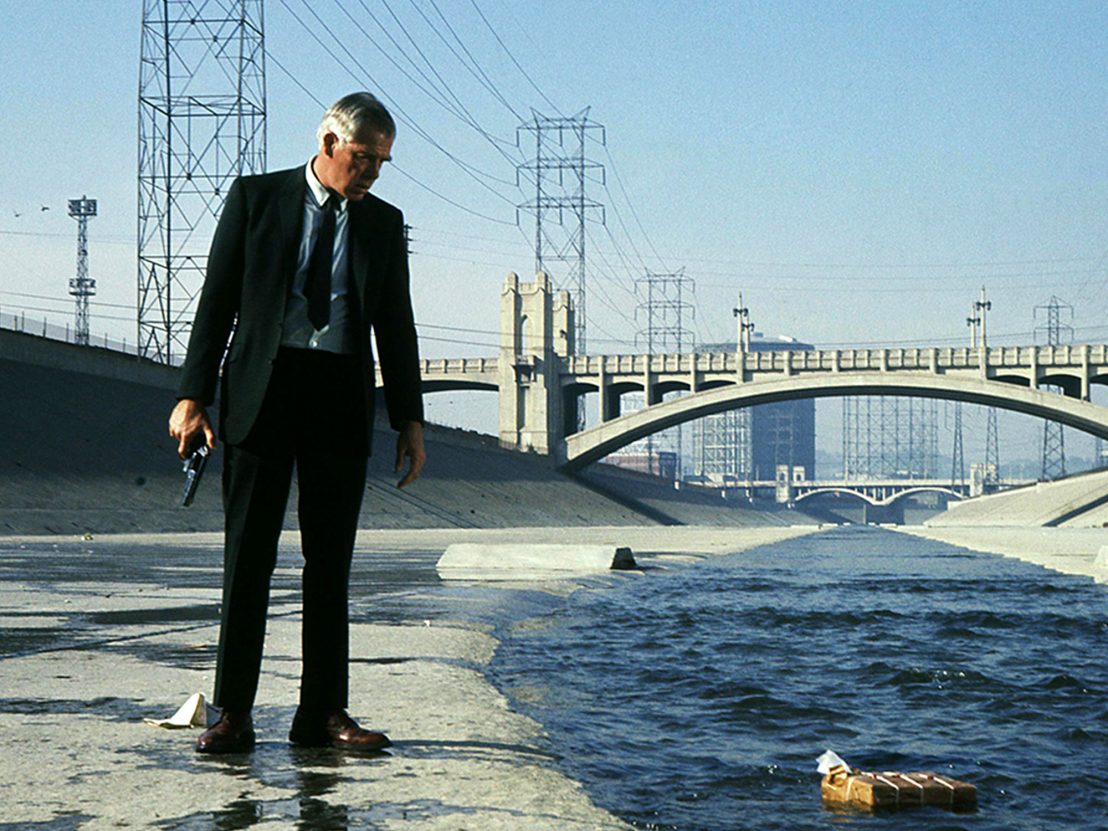Two bullet shots ring. A man falls and lies feebly in the corner of a prison cell. The cell is decayed and outdated, even for the 60s. We hear a raspy voice: “Cell. Prison cell. How did I get here?” Suddenly, we cut to a flashback. This is the opening to 1967’s “Point Blank.”
The opening reflects the overall nature of “Point Blank.” It’s mysterious, fragmented, gripping. It has “a non-linear narrative that works,” as film critic Roger Ebert says.
On Oct. 3, the Department of English held a film screening and a Q&A session to celebrate Dr. Eric Wilson’s recently published book on the film. Wilson briefly introduced the film and his work, then a partial screening of the film followed — as did a reception and book signing.
Wilson’s knowledge and appreciable passion for film underlined the experience. As he discussed “Point Blank” in detail during both his event and a recent interview, he conveyed how socially relevant and exceptionally enthralling the film is.

Wilson explained how this film is innovative, experimental and “very trippy” with its use of flashbacks and dreams.
“It’s very compelling just on the level of form,” Wilson said.“More importantly for this generation, ‘Point Blank’ doesn’t feel old-fashioned.”
In this film — directed by John Boorman — a crook named Walker (Lee Marvin) is shot and betrayed by his partner Mal Reese (John Vernon) during their heist on the abandoned Alcatraz Island. Walker survives the attempted murder and returns years later to enact revenge and re-collect his money. In Walker’s absence, Reese became a part of an extensive criminal organization and is more protected than ever.
The cult classic has “been so influential on some of the great American films of the past 25 years,” Wilson said.
These films include Quentin Tarantino’s “Reservoir Dogs” and “Pulp Fiction.” Like “Point Blank,” these movies have dishonorable yet cool and attractive criminals.
There’s also a line to Steven Soderbergh and his films, such as “The Limey” and the Ocean’s trilogy. Christopher Nolan was another name mentioned. Wilson said Nolan’s breakout film “Memento” is almost a remake of “Point Blank.”
Finally, “John Wick,” “Drive” and “Baby Driver” are also derivative as they are all “hip and stoic and stylish,” according to Wilson.
“[These movies have] this blend of a kind of darkness…yet attractiveness,” Wilson said.
Wilson also praises the film’s slapstick comedy routines. While intense, exaggerated action ensues around him, Marvin’s character remains deadpan. This comedic contrast is utilized in other films such as “John Wick” and the Dollars Trilogy.
Wilson says the stylishness and coolness of “Point Blank” and its blend of comedy, drama and psychological thrill is why the film is so influential.
His book discusses this legacy, as well as an issue of gender portrayed in the film.
“The film seems to be saying that hyper-masculinity is ultimately indeed toxic,” Wilson said. “It’s violent, it’s destructive. But, when we’re able to kind of move beyond our traditional gender category into something else, that may offer a possibility for healing.”
Wilson furthers this idea when discussing another one of Boorman’s films. In both “Deliverance” and “Point Blank,” when these “quintessential alpha male” characters adhere to their ultra-masculine facades, they aren’t successful.
Teachings of “Point Blank” through social commentary along with Wilson’s personal attachment to the film led him to write his book.

He and his dad always loved watching Marvin’s movies together. He recalls watching films such as “The Dirty Dozen” in his youth, so when Wilson saw “Point Blank” in 2017, he had already enjoyed the actor’s talent.
Additionally, Wilson was going through a divorce in 2017, so the film spoke to him when he “was struggling through a sense of betrayal and sorrow and trying to find the light.”
After that first watch, he devoted a year to working on his book. Written for the British Film Institute’s Classics Series, the book was published on Sept. 7, 2023, and will be the newest addition to the Wake Forest English professor’s critically praised works on film.
Wilson has written creative nonfiction, academic works and, most recently, film explorations such as “Secret Cinema: Gnostic Vision in Film” (2006) and “The Strange World of David Lynch” (2007).
“I just want to write about what I love,” Wilson said.
Check out Wilson’s already acclaimed book, and screen “Point Blank” next time you want to watch one of the classics.

















Rick • Oct 24, 2023 at 12:10 pm
Excellent!